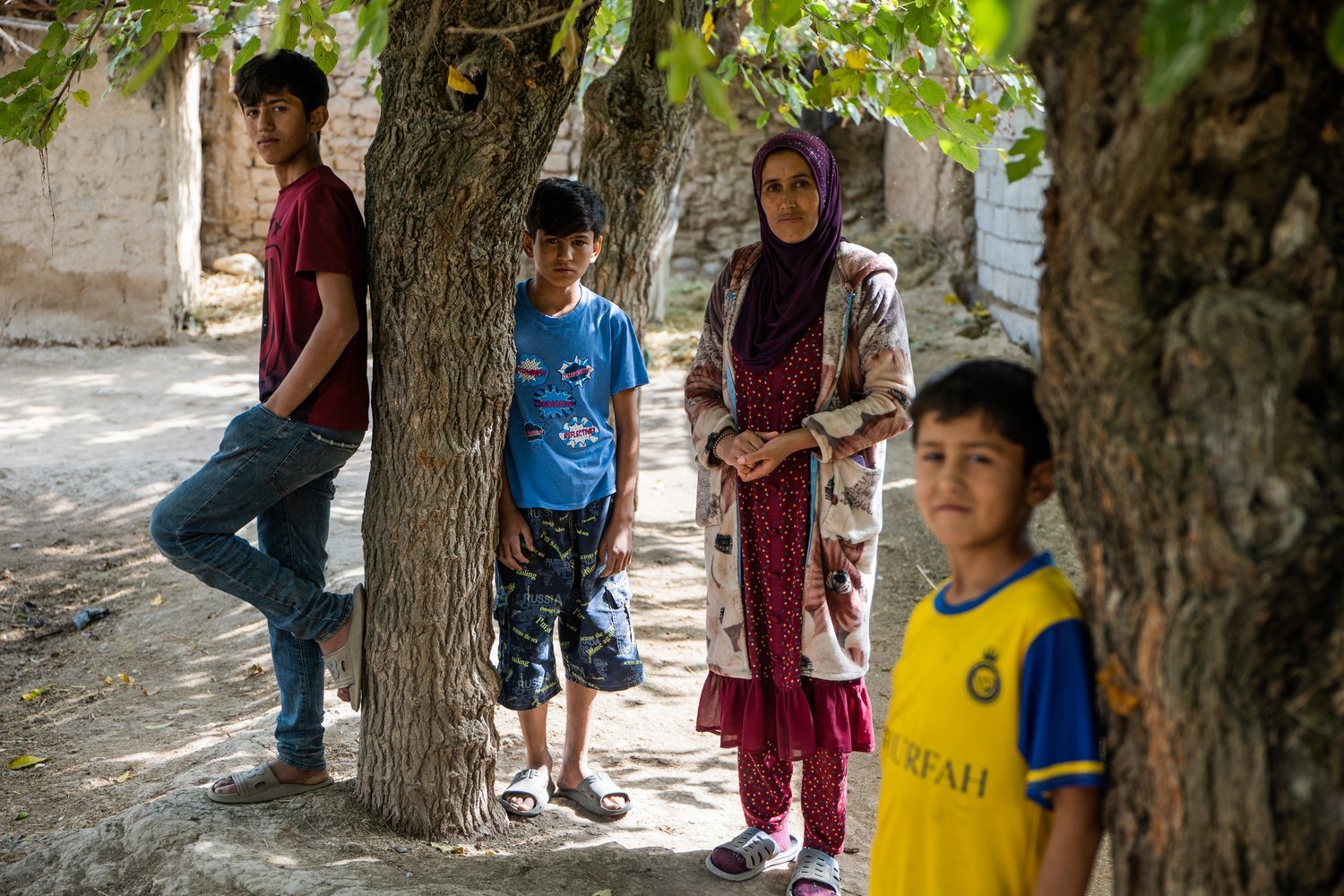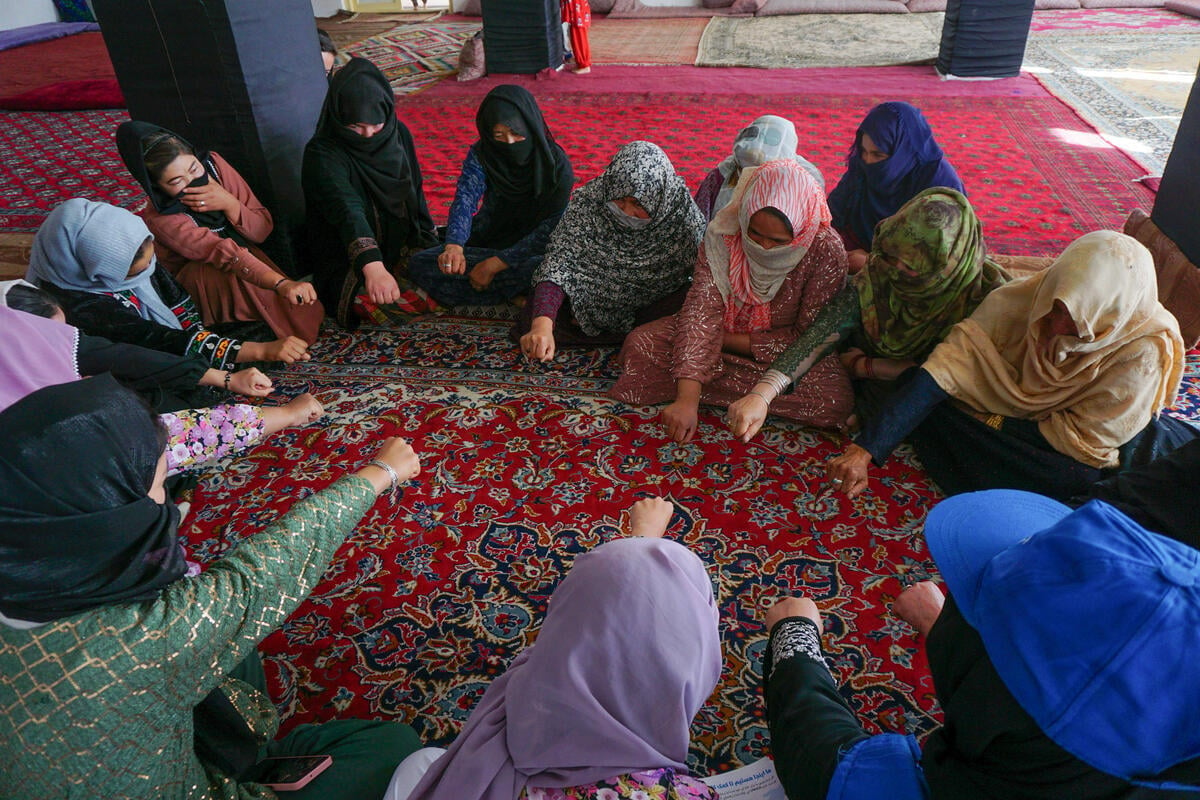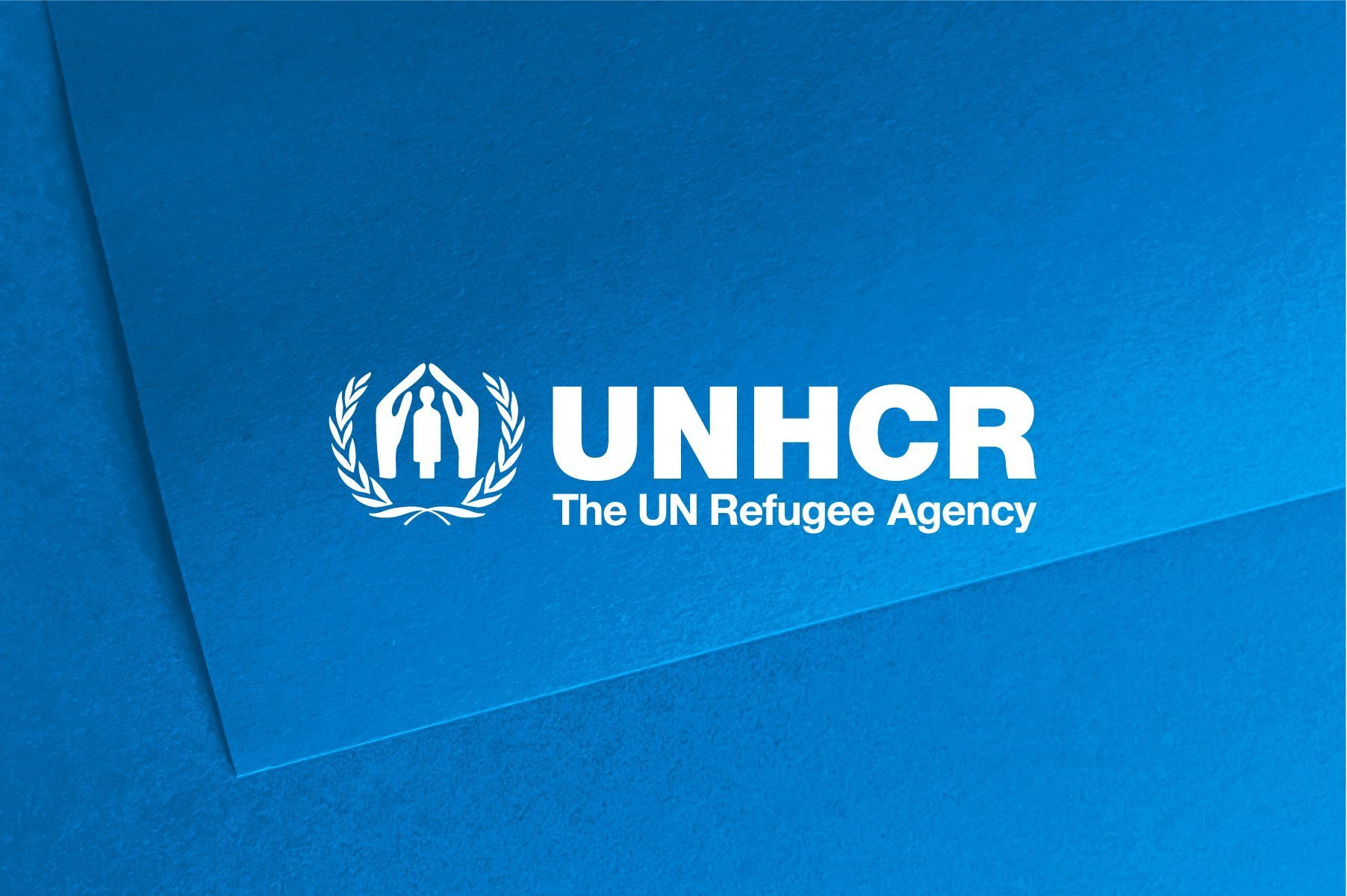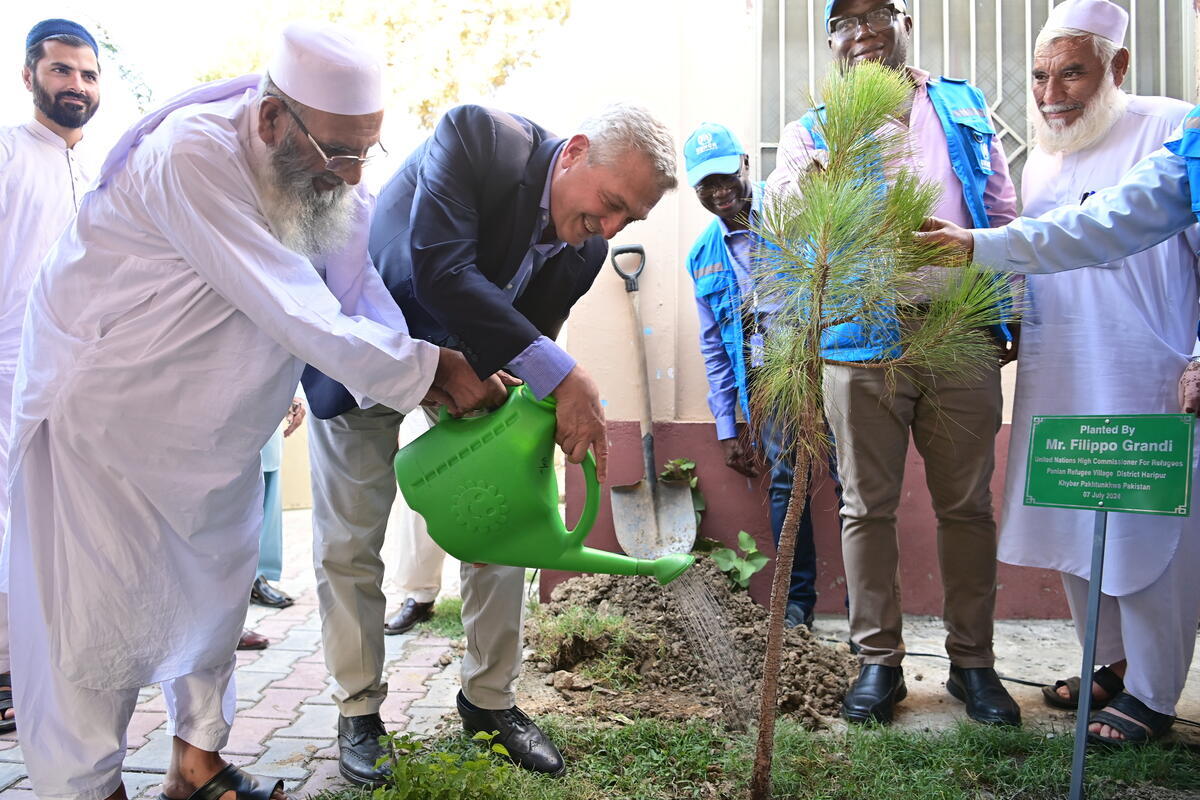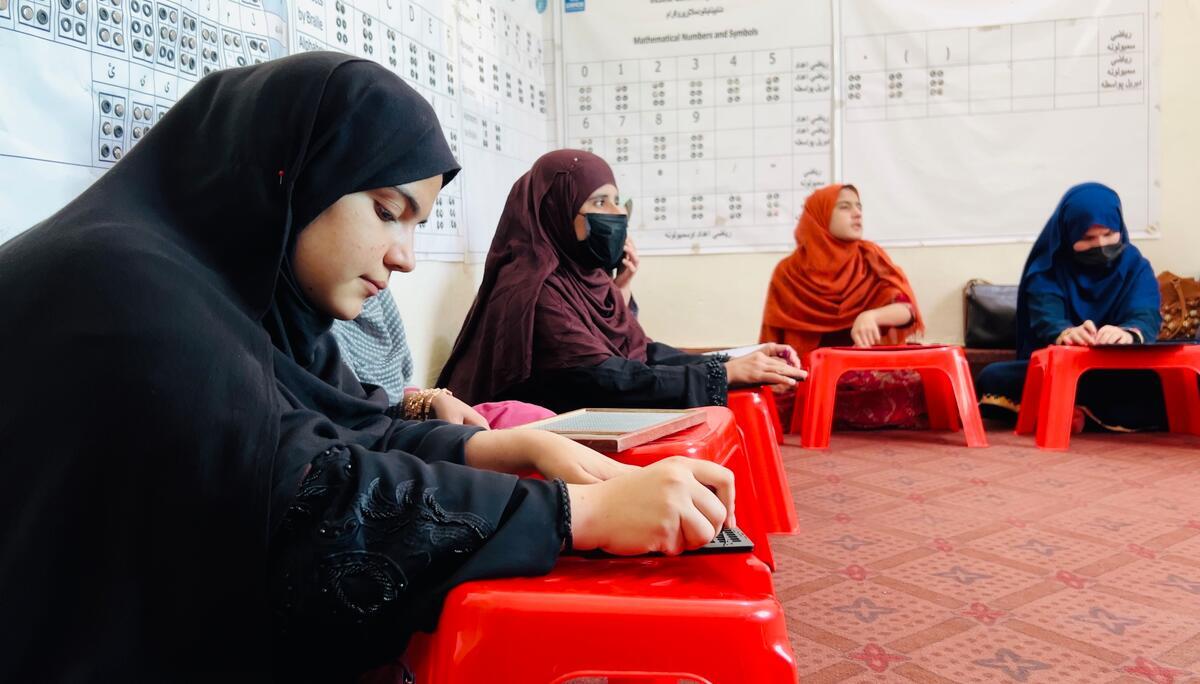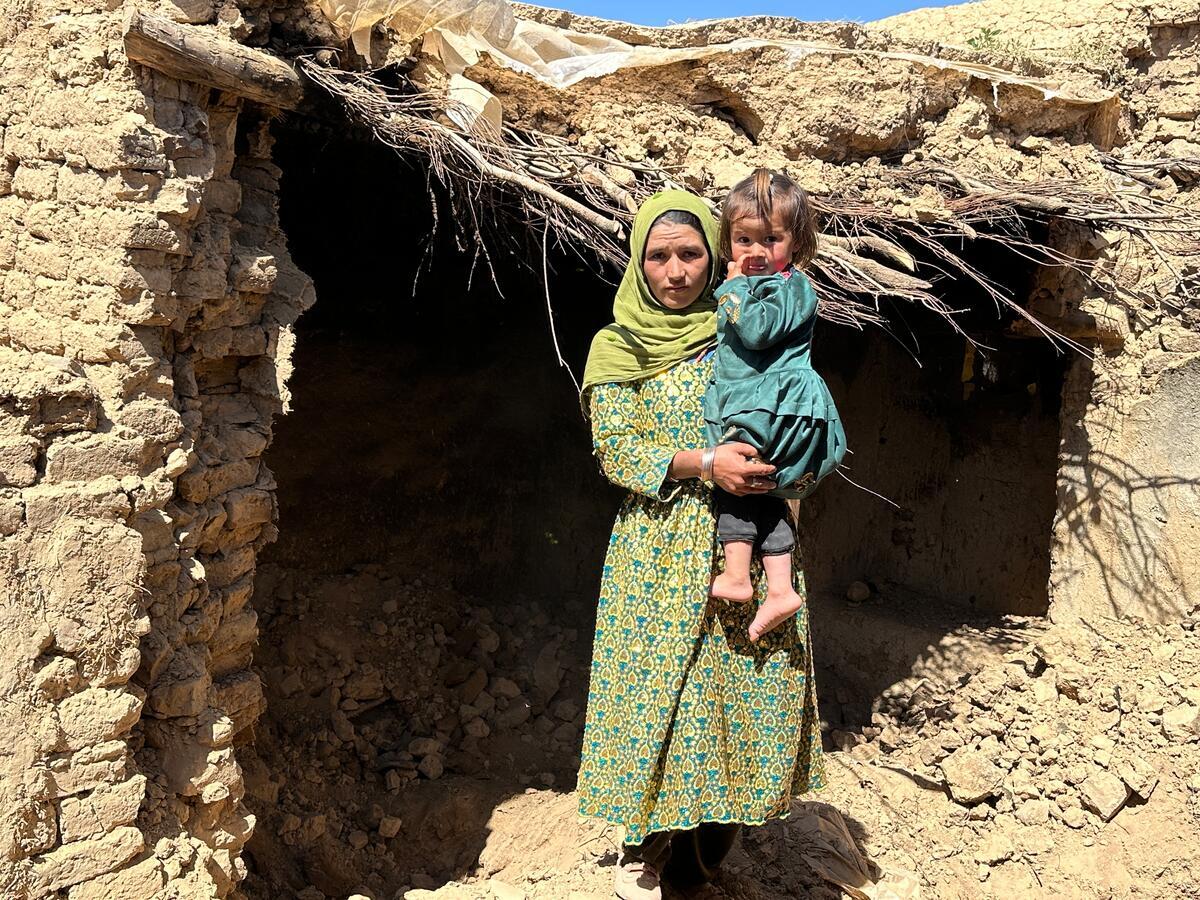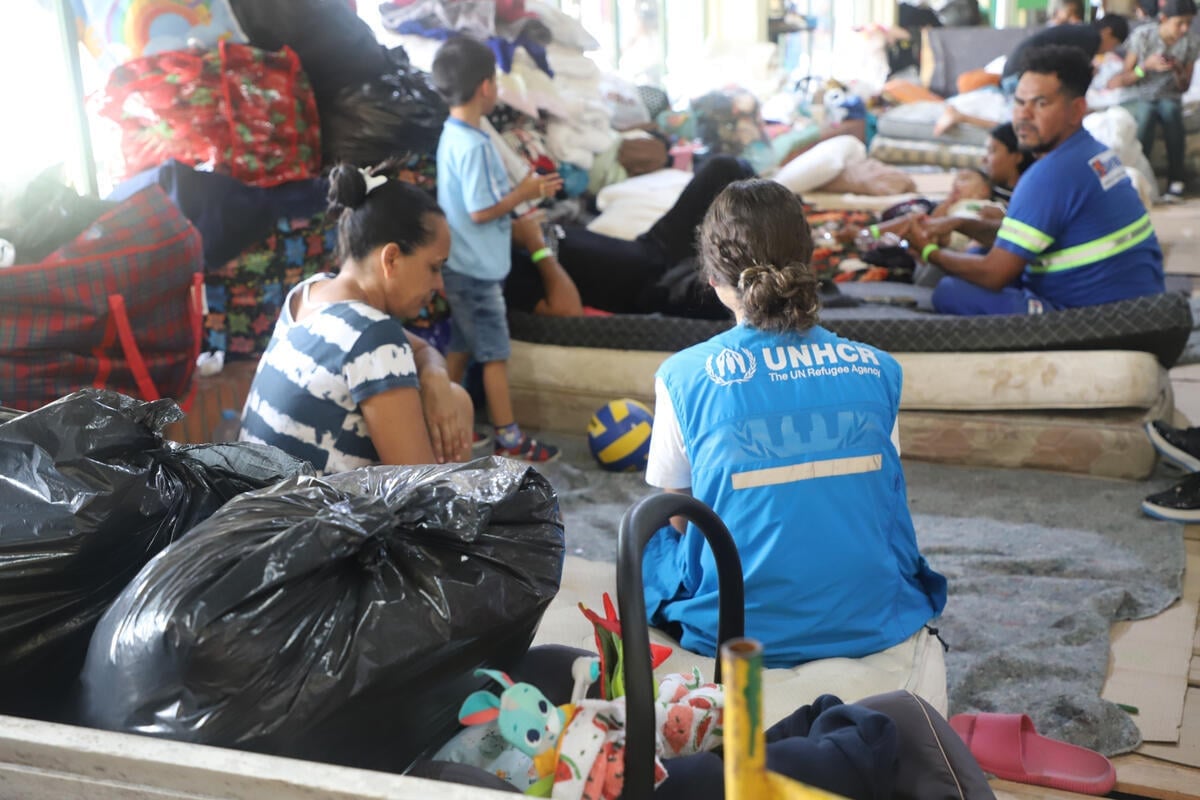UNHCR helps aspiring refugee pilot reach for the skies in Kazakhstan
UNHCR helps aspiring refugee pilot reach for the skies in Kazakhstan

ALMATY, Kazakhstan, March 17 (UNHCR) - Hasib is reaching for the skies. But the bright 17-year-old Afghan refugee has encountered some turbulence in his efforts to become a pilot and lay down stronger roots in a country that he regards as his home and future.
The young man is one of about 600 refugees in Kazakhstan, down from a high of about 20,000 at the start of the millenium. Most returned to their countries of origin, mainly Afghanistan, Tajikistan and the Russian Federation.
Even though they have adapted well in Kazakhstan, many of the refugees that remain wish to be resettled, but UNHCR has been encouraging people to opt for local integration and learn skills that will help them build a better future. Hasib's case illustrates some of the challenges.
Hasib, who arrived in Kazakhstan with his parents in 2002, could almost be a poster boy for UNHCR's local integration policy. He has no desire to go anywhere else. "Kazakhstan has become like a motherland for me and I want to become a citizen and contribute to its development," says Hasib, who is determined to qualify as a pilot and join the Almaty based carrier, Air Astana.
The UN refugee agency has been helping him to achieve that dream. "UNHCR helped me to enter secondary school in Kazakhstan and, later, with the pilot's academy," says Hasib, who graduated from school with excellent grades.
After mediation by UNHCR, the Civil Aviation Academy of Kazakhstan agreed to grant Hasib a 10 per cent discount on his tuition fees. And, because he is such an exceptional pupil, the Ministry of Education and Science is considering giving him a grant worth US$145,000 for his flight training.

But at first he flew into administrative and legal challenges over this issue of flight training, which meant he could only study in the classroom, not in the air. This obstacle needed to be surmounted for the dream to turn into reality - and, with UNHCR's help, he has managed to emerge from the clouds and resume course.
Refugees in Kazakhstan are granted legal status as "temporary resident," which bars them from enjoying a full range of legal, social and economic rights that would enable Hasib to proceed with the flight training vital for graduation.
Following concerted lobbying by UNHCR, the authorities reviewed Hasib's case and discussed whether to change his legal status to "permanent resident," which would allow him to complete his studies and apply for his dream job. In late February, Hasib learned that he had been granted permanent residency.
But UNHCR believes that all refugees should be given permanent residency. The refugee agency is advocating for this to be enshrined in law. "We hope the government and parliament will soon amend the National Refugee Law to ensure that refugees benefit from basic and fundamental access to legal, social and economic opportunities," said Saber Azam, UNHCR's regional representative.
UNHCR already works closely with parliament, the government and the Kazakhstan Human Rights Commission to improve the situation of refugees, including free access to state-run higher education. Access to private colleges and universities is not a problem, but most refugees cannot afford the fees.
Even though the refugee community has become an integral part of society, working mainly in the service industries, changes in the National Refugee Law would give young and bright refugees like Hasib more reason to stay in Kazakhstan and contribute to the country's future development.
"Refugees are not a burden to countries of asylum. On the contrary, they are extraordinary assets, contributing to the development of society and well-being of all its members. Refugees have been great politicians, scientists, artists and businessmen, where the host country has allowed them to flourish," Azam noted.
Meanwhile, Hasib is back on course to become the first Afghan refugee in Kazakhstan to become a professional civil pilot. With permanent resident status, he is ready for take-off.
By Zhanna Dossova in Almaty, Kazakhstan


